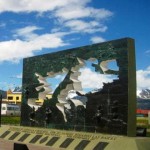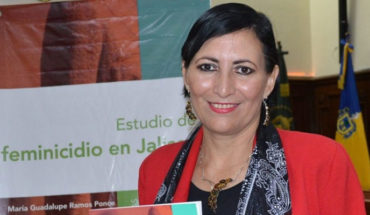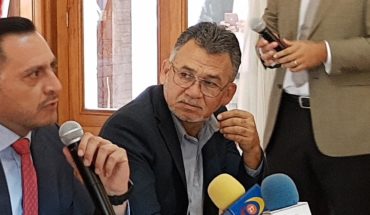
The image is sharp in my lousy memory; I remember clearly that photocopied book of journalistic chronicles of García Márquez, his smiling and good-natured face on the cover, the smell of that paper, the poor quality of the copy. I remember it, despite my terrible memory, because of the painful impression that what I read made on me. The story told of a Falklands soldier who had returned to the mainland. From a public telephone booth, one of those that were then on the sidewalks, he called his mother to tell her that he was already on his way. He asked her if she could take a companion who had lost a leg in the war, and she told him that she preferred not, that she didn’t know if she would be able to bear that image. The soldier hung up, and took his own life. The one who had lost his leg was him.
I’m not sure if it was a true story, but the fact that it was part of a book of journalistic chronicles gave it veracity, or plausibility at least. Also, we know, the real stories were as or harder. More soldiers (veterans) have died by suicides after the war than in the war itself, nothing more forceful than that to get an idea of the cruelty of that infamous war for the colimbas that the dictatorship sent to die.
That is for me Malvinas, those guys who went to die because it was decided by a drunken and bloody dictatorship. “The boys of the war”, those to whom we wrote letters at school that April 1982, which is 40 years old. That is why I understand the meaning of those posters that throughout the territory remind us that “the Malvinas are Argentine”, those that are absurd or incomprehensible to foreign friends or acquaintances who ask me about them. Those that I know are a nationalist scream for a poorly healed wound, like those untreated infections that then become a chronic plague. Those who do not realize that the people who live in that territory want to remain English, and although England treats them as second-class citizens, they have the right to self-determination, do they not?
For me Malvinas is that, the pain of the boys and a parricidal shame. Anyway, I admit it, I hear the march to Malvinas, the one we sang every day at school at that time, and I get excited when he says that, “absent, defeated, under strange pavilion, no floor [es] most dear, of the homeland in its extension.” Although I know that it would be necessary and urgent, for example, that we would like in the same way the looted mountain of the Qom, maybe that martial march strikes a chord with me, as proof of how effective the school is to amass nationalism. It is difficult to put critical judgment on these learnings when one is 6 years old.
That’s Malvinas for me… The boys with cold, the boys with hunger, the boys with fear, the boys massacred and raped by the Gurkhas and by a dictatorship, the boys buried on the islands, in tombs that cost so much diplomatic effort to be able to go to visit, the boys who died and stayed there, and those who lived, but still stayed there. That’s Malvinas for me, and it hurts me more than it does in ’82, in this world that I now see as an adult, in this world once again at war.
Malvinas, 40 years old… wars
April 10, 2022 |





